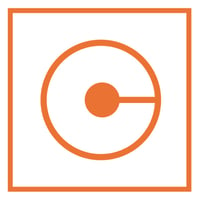Index Content
When you have a blog or a website you want to get the best positioning and be in the top search results, but that involves a lot of work, time and dedication. That is why many people try to take shortcuts to achieve this goal faster, but the truth is that doing these "traps" can be more expensive than you think.
These quick and dubious SEO positioning practices are called Black hat SEO. Don't worry if it doesn't ring a bell, today we explain what it is and what techniques you should avoid to avoid being penalised by search engines. If you are familiar with the term, we encourage you to read this post to learn more about it.
what is black hat SEO?
Black hat SEO is any SEO practice that involves cheating to position a website in a search engine. It involves using mechanisms to deceive the search engine and get a website positioned more quickly. They are deceptive strategies that violate the guidelines imposed by the various search engines and therefore should be avoided, to avoid being penalised by them.
In general, when we talk about search engines we are referring to Google, as it is the most used search engine worldwide, and in Spain it accounts for around 90%. Therefore, when we talk about techniques that penalise, we mean that Google penalises those who do not follow its guidelines and try to cheat its algorithm.
In short, black hat is a practice that goes against the search engines with the aim that a website is in the first results of the SERP.

Techniques to avoid being penalised
Getting to appear in the first search results is a long and continuous work. It is necessary for a good positioning to have updated content, quality and relevant to your buyer persona, in addition to other SEO practices necessary to be at the top of the ranking. For this reason, some try to make everything faster looking for the tricks to get it.
Today we bring you a list of the techniques you should avoid to be penalised by search engines:
-
Keyword stuffing
This is one of the most commonly used techniques to try to rank fast and trick the search engine, so you should avoid it. Keyword stuffing consists of inserting the keyword in a content in an abusive way, putting it an excessive number of times. It aims to increase the density of the keyword on the page and thus be relevant to search engines.
This practice means that the contents are not naturally written texts, are of low quality and difficult for users to read. In addition, Google has started to penalise the excessive use of keywords in the contents.
-
Cloaking
This practice consists of showing one content to users and a different one to the crawlers. This technique is highly penalised by Google because it is a deception of its algorithm. In other words, a website is generated for the search engine which is well optimised, but is unreadable for users, while another is generated for them, but is not crawled by the search engine bots.
Some sites that use this cloaking technique use it to insert spam links, malware or misleading redirects.
-
Paid links
this technique is simple, it involves asking relevant websites to generate a link to your page in exchange for payment, be it monetary, products, discounts, etc.
Itis another common practice, but you should avoid it, because Google strictly prohibits the buying and selling of links. The search engine says: "any link intended to manipulate a site's PageRank or ranking in Google's search results may be considered part of a linking scheme and a violation of Google's webmaster guidelines".
It is true that this is one of the most difficult practices for algorithms to detect, so Google puts emphasis on whether the relevant web page is related, i.e. they belong to the same sector or are complementary topics. But sooner or later the search engine will find you out and you will be penalised.
-
Link farms
Link farms are websites created for the purpose of link building. Each website links to the site (or sites) that you want to rank high in the ranking.
It is easy to identify websites that use this technique, as they are sites that have generally low quality content, which are full of links that lead to sites with no relevance. This is done so that the website has an increase in its backlink, which is a white hat SEOtechnique.
Instead of using this technique, create relevant content, graphics, use different formats such as videos or interviews, to get backlinks in a natural way.

-
Negative SEO
We present you the last black hat seo technique of this list that you should avoid, but there are many more, we have told you the most common ones.
Negative SEO consists of implementing actions that damage the SEO of a competitor's page. In other words, it is not a technique that you apply to your website and it does not aim to improve the ranking, it only aims to worsen the ranking of your competitors. The objective of this practice is that Google penalises your competitors.
An example would be to leave negative comments on platforms such as Tripadvisor or Google my business or generate low quality links to their websites (toxic links).
To avoid this happening to you, because the negative SEO may be done to you, you can use tools such as Google Seach console which includes an option to remove toxic links.
Now that you know what techniques you should avoid applying on your website, we recommend that you do White hat SEO, i.e. search engine optimisation following search engine guidelines.
It is important that you know and understand what black hat is so that you avoid it and that you do not do it to other websites either, because at any time Google or any search engine can penalise you.
we hope you enjoyed this reading!





